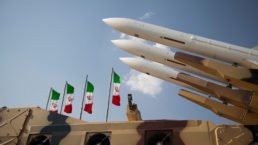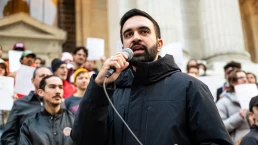A renewed JCPOA provides a way to avoid the threat of war that would arise should Iran at some point move toward nuclear capability.
By Kevin Martin and Phyllis Bennis, The Progressive Magazine
It could be make or break time for the Iran nuclear deal.
The Joint Comprehensive Plan of Action (JCPOA) was the Obama administration’s top foreign policy achievement. It led to dramatic reductions in Iran’s ability to enrich uranium in return for the U.S. and its allies lifting nuclear-related sanctions that were crippling Iran’s economy.

Former President Donald Trump abrogated the agreement just over four years ago. The Biden administration’s talks with Iran to revive the deal have since progressed impressively, but now they have stalled again.
The problem lies with one of the many new sanctions Trump imposed against Iran during his last days in office that have nothing to do with Iran’s nuclear program or the JCPOA.
Under Trump, the U.S. designated an elite Iranian military unit, the Islamic Revolutionary Guard Corps, as a foreign terrorist organization. That led to extreme sanctions against individuals and agencies connected to this group.
The designation was explicitly designed by Trump to serve as a “poison pill” that would make it politically much harder for the U.S. to rejoin the deal, since it would require lifting sanctions against a so-called “terrorist” organization.
Unfortunately, the ploy seems to have worked.
Recent Posts
Politicians Are Betraying Gen Z On Climate
July 10, 2025
Take Action Now While Gen-Zers thrift, knit, crochet, and find other ways to reduce our footprints, Trump and the GOP are greenlighting more climate…
Trump’s Deportation Threat Against Zohran Mamdani Is Shameful
July 10, 2025
Take Action Now In only half a year of Donald Trump’s presidency, he and his allies have turned deportation into an explicitly political threat…
Teachers Union Votes To Cut Ties To The Anti-Defamation League
July 10, 2025
Take Action Now In a momentous vote, the National Education Association voted to cut all ties with the Anti-Defamation League. The reason? “Despite…
2025 War Abolisher Awards Go To Albanese, Nader, Waters
July 9, 2025
Take Action Now The purpose of the awards is to honor and encourage support for those working to abolish the institution of war itself.By World…




